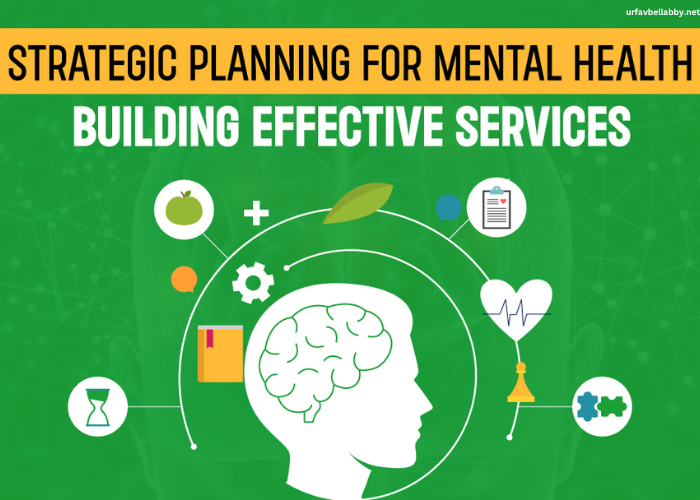In today’s fast-paced and often stressful world, taking care of our mental health has become as crucial as maintaining physical health. Mental well-being impacts every aspect of our lives, influencing how we think, feel, and behave. Fortunately, there are numerous strategies we can adopt to enhance mental health and achieve a more balanced and fulfilling life. Here, we’ll explore some of the most effective techniques to boost mental health and promote overall well-being.
1. Regular Physical Activity
Exercise is one of the most effective ways to improve mental health. Physical activity helps release endorphins, which are chemicals in the brain that act as natural mood boosters. Exercise also reduces stress and anxiety by lowering levels of cortisol, the body’s stress hormone. Whether it’s a brisk walk, a yoga session, or an intense workout, regular physical activity can significantly enhance mood and help manage mental health conditions such as depression and anxiety.
Key Takeaway: Incorporating at least 30 minutes of moderate exercise most days of the week can improve mood, reduce stress, and boost overall mental well-being.
2. Mindfulness and Meditation
Mindfulness and meditation are powerful practices for calming the mind and reducing stress. By focusing on the present moment without judgment, these techniques help individuals break free from overwhelming thoughts and anxiety. Meditation, in particular, has been shown to increase the gray matter in the brain, which is associated with improved memory, emotional regulation, and stress reduction.
Key Takeaway: Practicing mindfulness for as little as 10 minutes a day can help reduce stress, improve concentration, and increase emotional resilience.
3. Building Strong Social Connections
Humans are inherently social creatures, and meaningful relationships play a vital role in mental well-being. Having a strong support system of friends, family, or colleagues can provide emotional support during challenging times, decrease feelings of loneliness, and improve overall life satisfaction. Studies have shown that individuals with strong social ties tend to have better mental health and are more resilient to stress.
Key Takeaway: Investing in relationships by spending quality time with loved ones and engaging in social activities can improve emotional well-being and help manage stress.
4. Adequate Sleep
Sleep is essential for both physical and mental health. Chronic sleep deprivation can lead to mood swings, irritability, and difficulty concentrating. On the other hand, a restful night’s sleep promotes cognitive function, emotional regulation, and overall mental clarity. Adults should aim for 7-9 hours of sleep per night to ensure optimal mental health.
Key Takeaway: Prioritizing sleep hygiene—such as maintaining a regular sleep schedule and creating a restful sleep environment—can improve mood, memory, and cognitive function.
5. Healthy Nutrition
What we eat plays a direct role in our mental health. A balanced diet rich in fruits, vegetables, whole grains, and lean proteins provides the necessary nutrients for brain function and emotional well-being. Omega-3 fatty acids, found in fish and certain seeds, are particularly beneficial for brain health and may help alleviate symptoms of depression and anxiety.
Key Takeaway: A diet rich in nutritious foods, including omega-3s and antioxidants, supports mental health and cognitive function.
6. Setting Realistic Goals
Setting achievable goals, whether big or small, helps create a sense of purpose and accomplishment. When individuals feel they are progressing toward their goals, it boosts their self-esteem and fosters a sense of control. However, it’s important to set realistic, manageable goals to avoid feelings of overwhelm or frustration.
Key Takeaway: Break down large tasks into smaller, achievable steps and celebrate progress along the way to maintain motivation and mental resilience.
7. Engaging in Hobbies and Leisure Activities
Engaging in activities that bring joy and fulfillment is an essential aspect of maintaining good mental health. Whether it’s painting, reading, gardening, or playing a sport, pursuing hobbies can provide an outlet for self-expression, reduce stress, and foster a sense of accomplishment. Taking time to relax and enjoy personal interests helps recharge the mind and body.
Key Takeaway: Dedicate time to enjoyable activities and hobbies that help you relax, express creativity, and feel more connected to yourself.
8. Seeking Professional Help When Needed
While self-care practices can be incredibly beneficial, there are times when professional support is necessary. Speaking with a mental health professional, such as a therapist or counselor, can help individuals process emotions, develop coping strategies, and address any underlying mental health conditions. Therapy provides a safe space to explore one’s feelings and receive expert guidance for managing mental health challenges.
Key Takeaway: Don’t hesitate to seek professional help if you’re feeling overwhelmed, anxious, or depressed. Therapy and counseling can provide valuable support for mental health.
9. Limiting Screen Time and Social Media Use
While technology offers many benefits, excessive screen time and social media use can contribute to feelings of stress, anxiety, and depression. Constant exposure to curated images and comparisons can lead to negative self-image and isolation. Setting boundaries around screen time and taking regular breaks from social media can help improve mental well-being.
Key Takeaway: Limit screen time, especially on social media, and create tech-free moments to foster mental relaxation and connection with the present moment.
10. Practicing Gratitude
Practicing gratitude can be a transformative tool for boosting mental health. Focusing on what we’re thankful for, whether through journaling or simply reflecting on positive aspects of life, helps shift the focus away from negativity. Regularly practicing gratitude has been shown to enhance mood, reduce stress, and improve overall life satisfaction.
Key Takeaway: Taking a few minutes each day to reflect on what you’re grateful for can increase positivity, reduce stress, and foster a more optimistic outlook on life.
Conclusion
Mental health is a vital aspect of overall well-being, and by incorporating effective strategies such as physical activity, mindfulness, social connection, proper sleep, healthy nutrition, and seeking professional help when needed, individuals can take proactive steps toward improving their mental health. By prioritizing self-care and maintaining a balanced lifestyle, we can build resilience, improve our emotional well-being, and enjoy a more fulfilling life.





